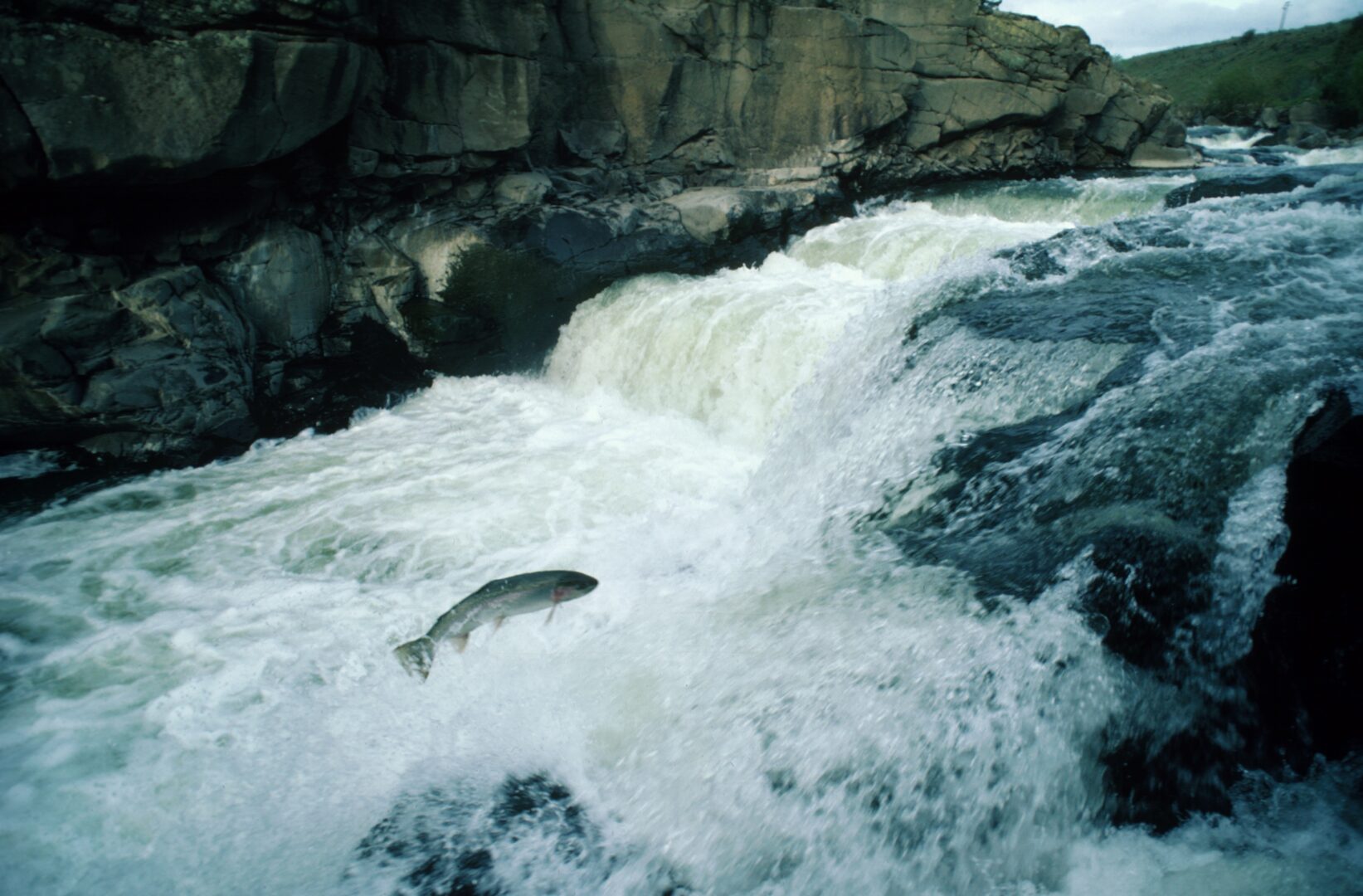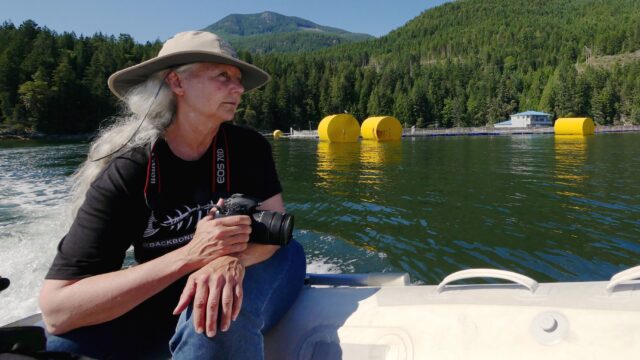If you’ve been following our work throughout the past few years, you might have noticed that we take protecting wild salmon very seriously.
When independent biologist Alexandra Morton approached us with concerns that aquaculture company Marine Harvest Inc. had transferred Atlantic salmon infected with Piscine reovirus into open net pens located along the Fraser River salmon migration route, we sprang into action. We took a closer look, and found that Marine Harvest was operating under the terms of a federal aquaculture licence issued by the Minister of Fisheries and Oceans, that purportedly gave the company the power to make decisions about transferring diseased fish into the ocean. In effect, the Minister was delegating his responsibilities for oversight of the aquaculture industry to the industry itself.
This sounded fishy to us, and the court agreed. In May 2015 we won a precedent-setting legal victory that ultimately quashed those licence conditions.
But just when we thought it would be smooth sailing, things took a rocky turn.
Despite several warnings, the Minister of Fisheries and Oceans is still not fulfilling his duty to protect wild fish and our oceans. Instead of taking basic precautionary steps to protect wild salmon, he is issuing transfer licenses for farmed salmon without testing them for Piscine reovirus. This is a reckless move that could cause irreparable harm to wild salmon stocks on the Pacific coast.
That’s why we’ve teamed up with Alexandra to take the Minister to court, again. Below, we answer some of the most commonly-asked questions we’ve gotten from supporters like you, to help get you up to speed on this case:
What’s the deal with HSMI and Piscine reovirus?
Heart and Skeletal Muscle Inflammation (HSMI) is a heart disease known to cause severe lethargy, limit salmons’ ability to feed, swim upstream and spawn, and renders them helpless against predators. In farmed fish, HSMI might not be fatal, but it could be a death sentence for wild salmon who need to be supreme athletes to survive.
Piscine reovirus is considered by most scientists studying the virus to be the cause of HSMI — this infectious disease spread from a single fish farm in Norway in 1991 to a whopping 419 farms in 2010. HSMI was diagnosed in a British Columbia fish farm in 2016.
Knowing all of this, it’s a wonder that the Minister is refusing to test farmed salmon for Piscine reovirus before allowing them to be transferred into open-net pens in the ocean.
Why did we take on this case?
Wild salmon are vital to ecosystems and coastal First Nations communities. And with wild salmon runs at the lowest they have been in more than 100 years, we believe that this case is now more important than ever.
Under federal fisheries laws, the Minister of Fisheries and Oceans has a legal responsibility to protect wild salmon from harm and he’s not living up to it. We know that HSMI has been found on salmon farms in British Columbia. Yet the Minister outright refuses to test farmed fish for Piscine reovirus, which an emerging scientific consensus suggests causes HSMI, before allowing them to be transferred into the ocean where they might infect wild fish.
This is illegal and we couldn’t stand by and let it continue.
We’ve successfully taken the Minister to court in the past and we believe that this is the best way to get him to take action and protect wild salmon.
The Minister needs to do his job and follow the law. End of story.
What do we hope this case will accomplish?
If successful, the court will force the Minister to comply with the Fishery (General) Regulations and apply the precautionary principle when approving fish transfer licences.
In other words, the Minister will not be able to issue transfer licences for fish infected with Piscine reovirus unless he can prove that it is not a threat to wild fish.
The government has a responsibility to work in the public interest and must proceed with caution when making decisions that could have serious environmental impacts.
How can I support this case?
Litigation is expensive, time-consuming, and the outcome uncertain, but in cases like this one, it’s a powerful way to achieve durable, actionable results. Each case we take on requires us to put in hundreds, sometimes thousands, of hours of work and substantial resources to secure the best possible outcome for the environment and the public. The support of people like you ensures that we can sustain our efforts for as long as it takes to see things through.
You can support this case by giving a gift today or sharing this information with your family and friends.



